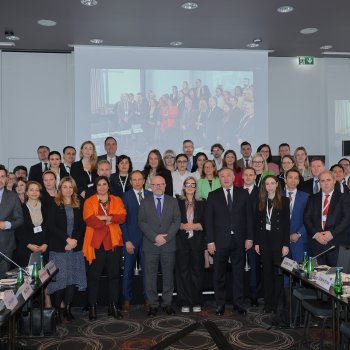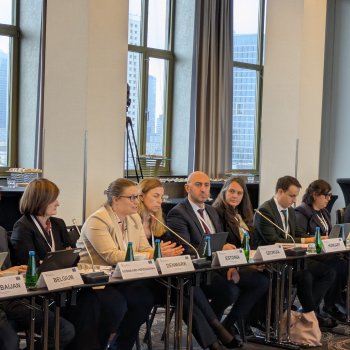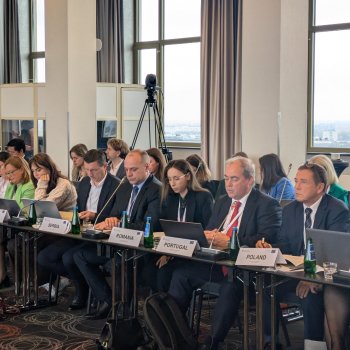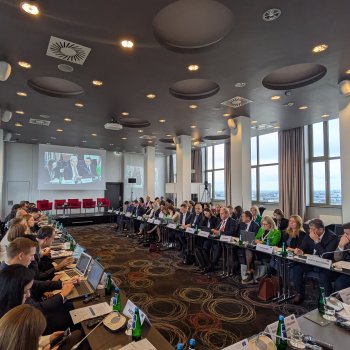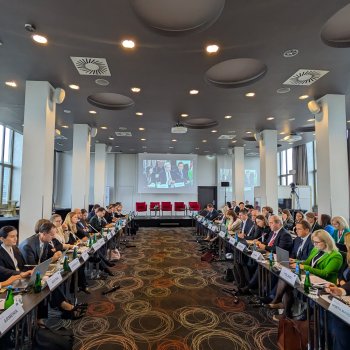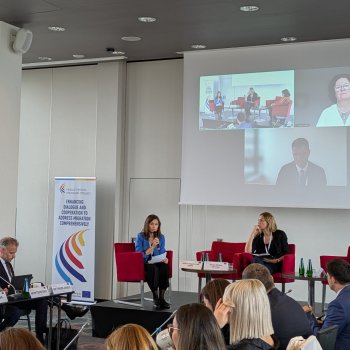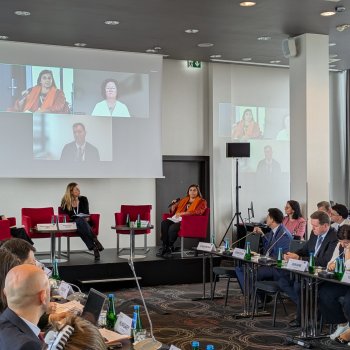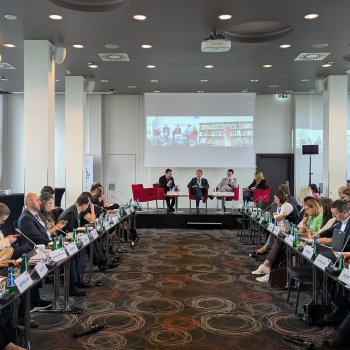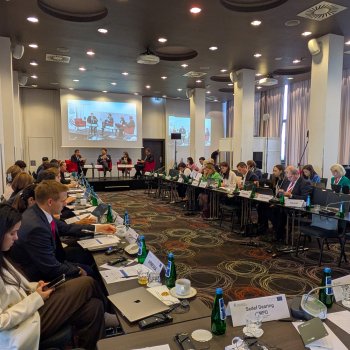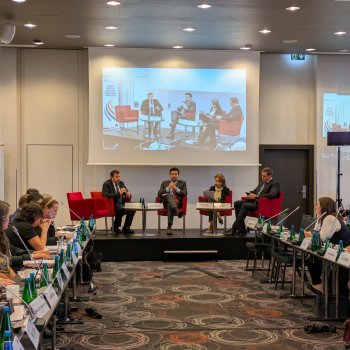The Prague Process Senior Officials’ Meeting (SOM), hosted by Poland’s Ministry of the Interior and Administration, brought together over 70 senior representatives from 31 participating states and key international partners – including the European Commission, EUAA, Frontex, FRA, IOM, UNHCR, and ICMPD – to review migration policy developments, share priorities, and provide strategic direction for the implementation of the Prague Process Action Plan 2023-2027.
Opening the meeting, Deputy Minister Maciej Duszczyk (Poland) highlighted the enduring relevance of the Prague Process as a bridge between EU and non-EU countries. “Europe has been living in a permanent migration crisis since 2016,” he noted, urging stronger coordination to address challenges that no single country can solve alone.
Mr Tomáš Pažitný, Chair of the Prague Process (Czech Republic), underlined the Process’s long-standing role in fostering trust and practical cooperation, noting that the discussions in Warsaw would feed into preparations for the 5th Ministerial Conference. Representatives of the Danish EU Presidency, European Commission, and ICMPD reaffirmed migration as a shared priority, stressing that the coming years must focus on innovation, implementation, and measurable impact.
“In a time of overlapping crises and shifting migration patterns, the Prague Process remains a vital anchor of dialogue and trust,” said Ms Sedef Dearing, ICMPD Deputy Director General. “It connects people, policies, and practice – and turns cooperation into real progress.”
Over two days, delegates exchanged perspectives on migration management, policy reforms, and cooperation needs. EU Member States discussed preparations for the forthcoming EU Pact on Migration and Asylum, while non-EU partners showcased progress in digitalisation, reintegration, and legal migration initiatives. Across interventions, participants reaffirmed the Prague Process’s unique value as an inclusive, demand-driven platform connecting diverse migration realities.
Three thematic panels provided in-depth discussions on:
- Implementation of the EU Pact on Migration and Asylum, focusing on border procedures, returns, and digitalisation;
- Instrumentalisation of migrants along the EU’s eastern borders, viewed through both security and humanitarian lenses; and
- Forced displacement from Ukraine, addressing integration, sustainable return, and coordination between origin and host countries.
Day two featured presentations by Serbia, UNHCR, the Migration Partnership Facility (MPF), and the Return and Reintegration Facility (RRF), illustrating tangible progress in operational cooperation. The Prague Process Secretariat reviewed achievements under the Action Plan 2023-2027, noting strong participation and growing synergies across its four pillars: Dialogue, Migration Observatory, Training Academy, and Thematic Components.
A mid-term evaluation conducted by Samuel Hall confirmed the Process’s continued relevance and impact, noting that over 70% of Action Plan commitments have already been achieved. It praised the Prague Process’s digital innovation, strong ownership by states, and close alignment with other migration dialogues.
In closing, participants endorsed preparations for the 5th Ministerial Conference, to be hosted by Lithuania in January 2027, and agreed that the next phase (2028-2032) should remain inclusive, forward-looking, and focused on practical cooperation and measurable results.
The SOM reaffirmed the Prague Process as an indispensable platform for equal, trust-based dialogue between EU and non-EU countries – promoting coherent, humane, and future-ready migration governance across the wider European region.


